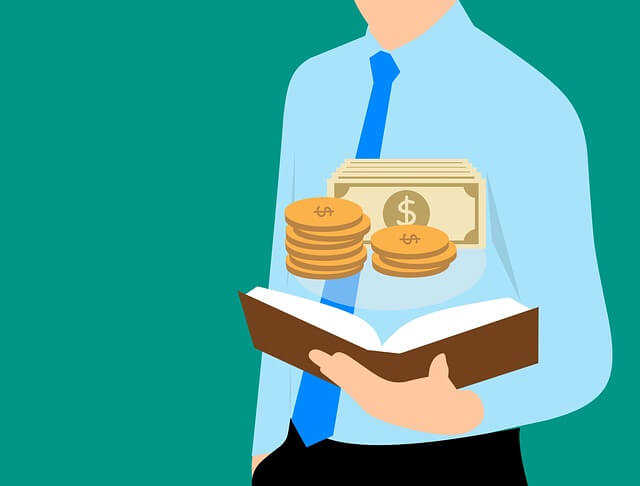Filing for Chapter 13 Bankruptcy provides US citizens with the opportunity to start afresh after a period of financial difficulty. There are many circumstances which can affect your ability to pay your bills, mortgage or keep up with other financial obligations. Losing your job or facing high cost medical bills are common examples and hundreds of thousands of Americans file for a Chapter 13 bankruptcy each year. In this post Peoples Bank Mortgage is going to answer the question, “How Does Chapter 13 Bankruptcy Work?”
How Does Chapter 13 Bankruptcy Work?: The Basics
At its core, Chapter 13 bankruptcy is a reorganization of finances. To point out, the Wage Earner’s Plan allows individuals with a steady income to repay their debts over a period of 3-5 years. The main advantage of Chapter 13 bankruptcy, as opposed to Chapter 7, is the ability to keep your assets. This key benefit makes it ideal for homeowners who want to avoid foreclosure. Chapter 7 bankruptcy is a liquidation of your assets, in order to write off debt completely.
Once you have filed for a Chapter 13 bankruptcy, an automatic stay will go into immediate effect. This prevents creditors from making any further contact, or demands of you. You’ll submit a payment plan which will detail the amount you plan to pay each month towards your total debt. Any unsecured debt, such as credit card bills, will be discharged after your Chapter 13 bankruptcy comes to an end.
While you can file without an attorney, Chapter 13 Bankruptcy is a long and complex process so many individuals seek help from a legal professional. Your attorney will be the best source of support to navigate the various forms and requirements necessary. It is highly suggested that you partner with a knowledgeable attorney who truly understands how Chapter 13 bankruptcy works. There is also a charge for filing for a Chapter 13 bankruptcy. Ensure that you budget for the fees that are to incur while you are filing for Chapter 13 Bankruptcy. The fees usually average around $281, but may vary from State to State.
Chapter 13 Bankruptcy and Its Affect on Your Taxes
Filing for a Chapter 13 bankruptcy does not have an effect on taxes. Hence you must file your tax returns, and pay taxes as usual. Any past tax which is due but you have struggled to pay can be included in your payment plan. There is the possibly of getting an extension for a tax return if necessary, the details for this can be found on the IRS official website. It is equally important that failing to pay taxes during your Chapter 13 bankruptcy will have a negative impact on your case.
Your Chapter 13 Bankruptcy Repayment Plan
A Chapter 13 repayment plan spreads out the total cost of the debt you owe into manageable monthly payments paid over the course of 3-5 years. Before filing for a Chapter 13 bankruptcy, you will need to itemize all of your assets, debts, income and outgoings. Be sure to focus on the two years prior to the date of filing. Gather together as much information as you possibly can such as loan documents, tax information, mortgage/vehicle contracts, and details of major payments.
An attorney will assist you in calculating a payment plan. This payment plan is a requirement that you most include during the filing process. Take the time to consider this carefully to ensure your plan is realistic and something you can maintain on your individual budget. Think about how much you need to cover your living expenses such as your mortgage payments, utilities, food and taxes. Apply any disposable income towards your monthly plan.
Once you file for a Chapter 13 bankruptcy, the court will assign you a trustee. This individual will be in charge of distributing your monthly payments to creditors. They will ensure that each creditor you owe money to receives a reasonable percentage from your payment plan.
Preparing for Discharge from Your Chapter 13 Bankruptcy
By understanding how Chapter 13 Bankruptcy works you are able to prepare for your discharge from your plan. Your debtors cannot contact you during your Chapter 13 plan. Therefore, you must reach out to any creditors that haven’t been completely paid off, or debts stripped in the bankruptcy. Ensure that you are aware of any new payments that need to be made directly to the creditors. It is also important to connect with previous debtors. Ensure they properly report your new positive financial situation to the credit reporting agencies.
Choosing a Mortgage Company After Chapter 13 Bankruptcy
Now that you have a better understanding of how Chapter 13 bankruptcy works, it might well be in your future plan to get a home loan. This is far from impossible thanks to our dedicated mortgage division. We specialize in assisting clients with a bankruptcy in their past to find the right mortgage that suits their situation. Having had extensive training in this area, our advisors are well aware that you have proven yourself to be responsible in reorganizing your finances through the help of a Chapter 13 bankruptcy. Contact us today to find out how Peoples Bank Mortgage can help you open the door to your dream home.
Published (May 8th, 2018)

